hankyoreh
Links to other country sites 다른 나라 사이트 링크
[Interview] Sweden’s take on the North Korea-US negotiations
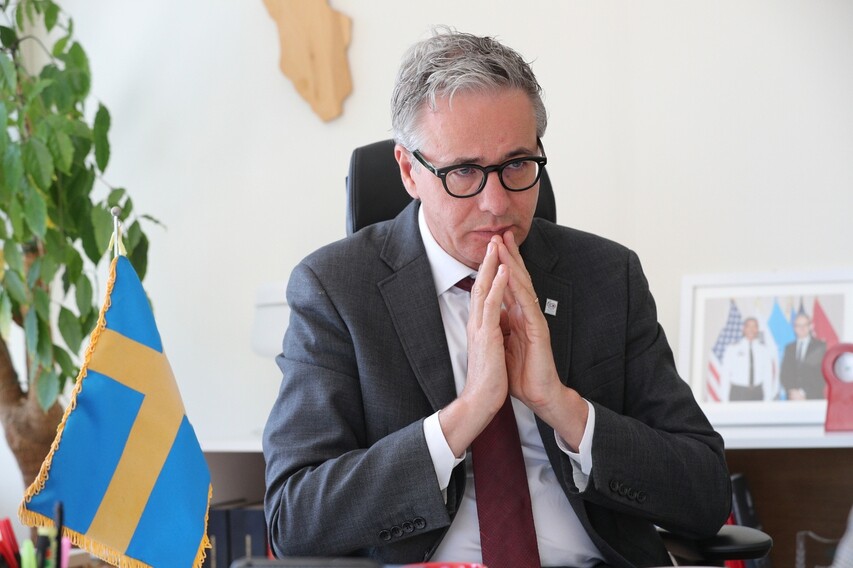
Sweden was the first Western country to establish an embassy in Pyongyang, and was once a country that considered developing nuclear weapons before choosing to disarm 50 years ago. This seems to make Sweden the ideal candidate for serving as a facilitator between North Korea and the US in their current denuclearization negotiations.
The Hankyoreh decided hear Swedish Ambassador to South Korea Jakob Hallgren’s perspective on the North Korea-US working-level talks, the concept of denuclearization, and why Sweden has taken such an active role in promoting dialogue between the two countries.
Sweden is only country with missions in Pyongyang, Panmunjom and SeoulHankyoreh (Hani): The North Korea-US working-level talks were held in Stockholm last week. Sweden has good relations with both countries, and prepared a negotiation site relatively inaccessible to the press. Last January, the Swedish think tank SIPRI arranged a meeting between South Korea, North Korea, the US, and Sweden. Why are the Swedish government and diplomatic authorities so active in mediating talks between North Korea and the United States?
Hallgren: Sweden has a particular role on the Korean Peninsula. It Is not only a role. It is actually a responsibility. And we’ve been assuming that responsibility with increasing intensity over the last couple of years. Because we think that the conflict between the US and North Korea is a threat to world peace. So given that Sweden has a particular role and responsibility, we are trying to do the little we can in the margins to actually promote the peaceful outcomes of the conflict here on the Korean Peninsula.
Sweden has very strong relation with South Korea. A Swedish field hospital arrived on Sept. 23, 1950, to Busan, and they stayed for 7 years, caring for more than 2 million patients. We were together with other Scandinavian countries building medical centers taken over by Korean authorities. Since 1959, we have had diplomatic relations. We have very strong, broad, and deep relations with South Korea today. Sweden was also the first Western country to open diplomatic relations with North Korea in 1973. We have had a North Korean embassy since 1975. We are taking care of the consular interest of the US for individuals, so-called protected power, and we also present on the border with the Neutral Nations Supervisory Commission together with Switzerland.
No other country has three missions on the Korean Peninsula: Seoul, Panmunjom, and Pyongyang. On top of that, we are not party to this conflict. China, Russian, Japan, the US, and North and South Korea have an interest, but we are an outsider that actually makes a difference, so over the last couple of years, the Swedish government has decided that we want to actually help to the extent that we can. In the fall of 2017, the Swedish government appointed a special envoy, an ambassador, Ambassador Kent Harstedt [Swedish special envoy to the Korean Peninsula], to cultivate contacts with all of the key parties. What you've seen this weekend as well as in January, it is a result of historical circumstances, and long-term engagement because we are just as afraid as anybody else of the risks of a total breakdown of the relations between North Korea and the US. That is the motivation of our engagement. We are not seeking publicity because we are not party to this, and we are trying to be helpful if it is interest of the parties to have someone from the outside who facilitate the dialogue.
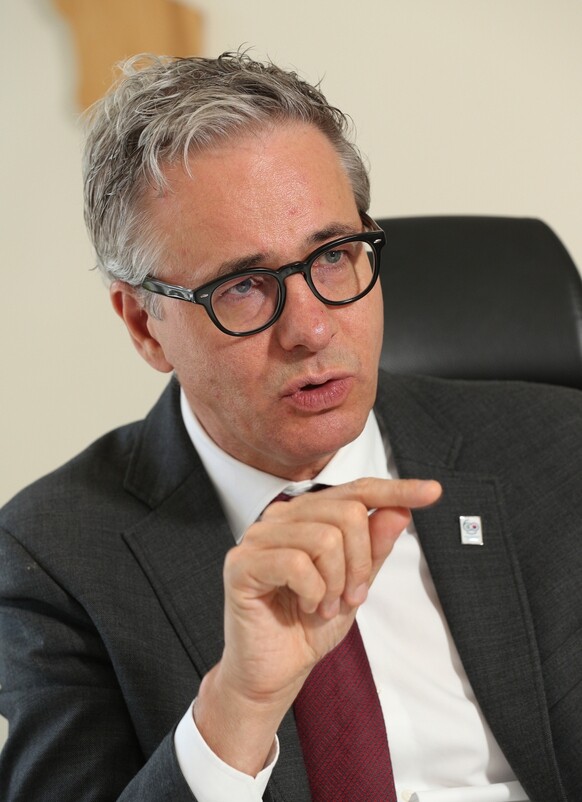
“Sweden has particular role and responsibility as facilitator”
Hani: Sadly, working-level negotiations between the U.S. and North Korea ended without an agreement. However, the Swedish government invited both of them to return to Stockholm to meet again in two weeks, in order to continue discussions on all of the topics. The United States delegation has accepted this invitation. Do you think North Korea will accept this proposal? Will the Swedish government again approach to North Koreans and persuade them as a mediator?
Hallgren: This is a very complicated conflict. The fact that two parties have met and talked during the two days, we think, is very positive. Now the two parties are taking the results of these two days of negotiations back to their respective capitals, and they are assessing whether there is a possibility to continue the dialogue or not. If they are willing to meet again, and they are willing to do so under Swedish hospicies, they will be welcomed, but it is difficult to say whether that will happen and when. So it is up to the parties.
Hani: Will the Swedish government again approach the North Koreans and persuade them?
Hallgren: I cannot really comment about that. The Swedish envoy is in constant contact with all of the parties concerned with the conflict. I can only say that we are not party to the talks. We are trying to be a facilitator when that is accepted.
Hani: How did the Swedish government become a mediator during the negotiations between North Korea and the United States? Many Korean citizens also find the role of Sweden interesting.
Hallgren: This is not the only conflict where Sweden has been a mediator. Our special envoy is not the only Swedish mediator. Sweden actually has a really long tradition of providing good offices. First of all, we are not really a mediator, we are more of a facilitator such as the second secretary general of the UN, Dag Hammarskjold, the very first mediator of the Palestine and Israel conflict in 1948. There are many examples in modern history of Swedish diplomats and politicians serving as a mediator.
We served as the mediator in Bosnia during and after the war in the 1990s. I think the reason has to do with that Sweden during the Cold War was a neutral, non-aligned country between the Western and Eastern blocs. Strong economy, and strong army but still neutral and non-aligned. There is a need in international relations and international diplomacy sometimes of someone respected by both sides to make sure that the parties can meet under acceptable premises and hospices with someone who is accepted by both sides. This is an expression of a long tradition. There are other countries such as Norway, Switzerland, Finland, maybe Austria, who have played that role very successfully.
Sweden has this very particular role and responsibility on the Korean Peninsula that no one else has. I think it is wrong to talk about Sweden as a mediator when it comes to Korean Peninsula because I don't think the parties are interested in having a mediator. There is a difference between being a facilitator and a mediator, so I think it's better to talk about the role as a facilitator.
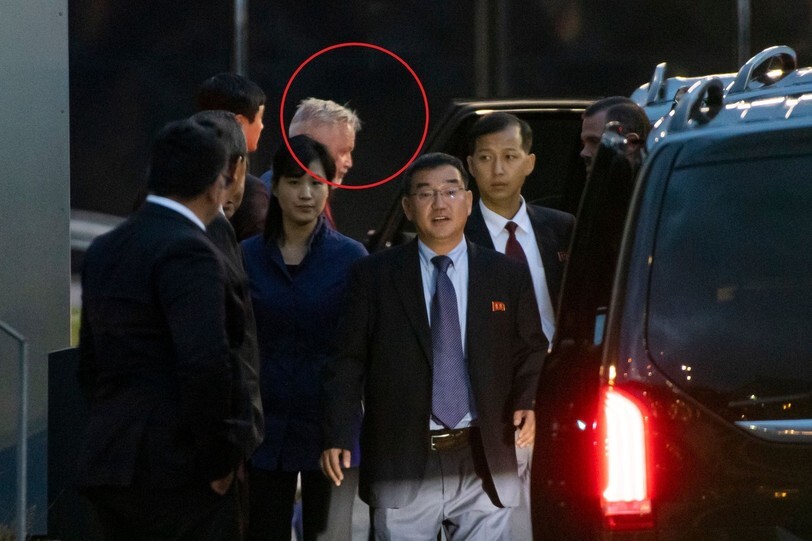
Swedish Embassy in Pyongyang established special room for US use in 1995
Hani:The Sweden Embassy in Pyongyang is currently acting as a consular agent for the United States. Usually, if a country wants to create a new liaison office, it goes through another embassy that is already in charge. If there is going to be a US liaison office in Pyongyang in the future when the relationship between the US and North Korea improve, would there be a possibility of placing it under the Swedish Embassy?
Hallgren: Obviously, this will be entirely up to the two parties and to what they agree. I only know that according to part of the agreement between Sweden and the US, there is a room set aside which could be used by the US for situations where they chose to open activities. That is part of the open agreement in 1995 between Sweden and the US. There is already such a possibility. Now whether they want to use that or whether they want to do it differently, if they agree to indeed open the liaison office, is difficult to speculate about. It has been there since 1995.
Hani: Do you have any advice for both the United States and North Korea to make progress in the negotiations in the future?
Hallgren: It is not really up to me as Swedish ambassador to give them any public advice. I am convinced that they know best how to shorten the way. If we are a facilitator, we are not supposed to give any public advice. There are so many experts out there.
Hani: Differences exist when there is a mediator in negotiations between countries. What can South Korea do to make progress in North Korea-US negotiations?
Hallgren: I think it has been stated quite bluntly both from North Korea and the US that they are not interested in having any mediator. Although it is true that they called on Seoul to mediate the Panmunjom meeting on June 30. Both parties can be a bit vague and contradictory. South Korea's role in 2018 was absolutely important and instrumental, starting with the Winter Olympics and the three summits. It seems the situation is slightly different right now. The two parties have said that they want to talk among themselves only. I guess that we have to respect that reality.
South Korea is an extremely important party to this process. South Korea needs to have a role sooner or later. What type of role and how? That's a bit difficult to say today. All the experts have been very clear on that after the summit meetings with the declarations made in Singapore and Pyongyang last year, the next logical step is more working-level negotiations. I think everybody hopes for an agreement or some kind of breakthrough between the two countries and if we have an agreement, we will know what the next steps are. Obviously, we know what issues are on the table. It is about the security guarantees, denuclearization, sanctions lifting, and inspections. This is kind of up to the parties.
There is so much suspicion. There's such a big lack of trust on both sides. All conflict negotiations and mediation, and peace processes teach us that there needs to be a leap of faith. Someone needs to have the trust and guts to throw the first ball and then someone will respond and then that could lead to a virtuous cycle.
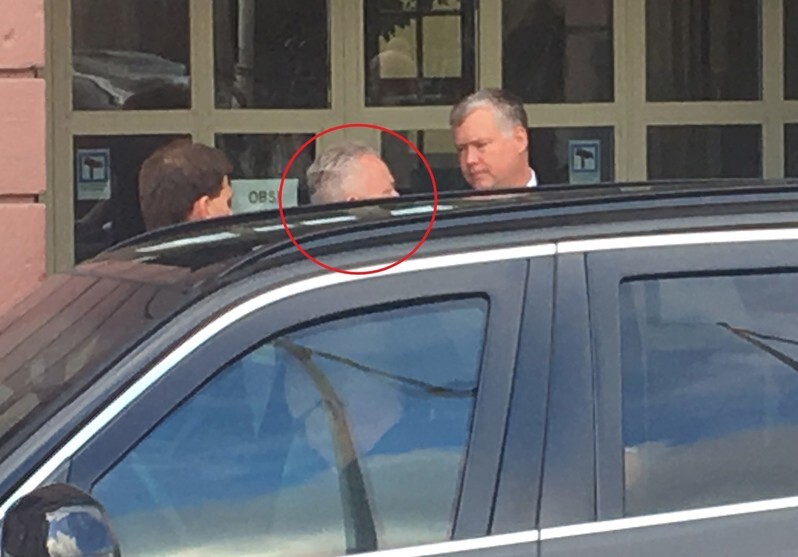
Hani: The South Korean government is paying attention to the Swedish government's role in the negotiations between North Korea and the United States. South Korean President Moon Jae-in delivered a speech related to denuclearization on the Korean Peninsula in the Swedish parliament on June 14. He also talked about the denuclearization of Sweden. Does the Korean government have close communication with the Swedish government regarding the North Korea-US negotiations? How is the Swedish government working with the Korean government? Does the South Korean government send messages to North Korea through Sweden?
Hallgren: As I told you before, we have this function which with the special envoy to the Korean Peninsula. He is in close contact with all the parties concerned. That of course includes South Korea. Yes, there is a dialogue with all of the other relevant parties including China, Russia, and Japan as well. That is a fact. It is very important to have integrity if you are in that position.
The speech that President Moon delivered in the Swedish parliament was fantastic. Because he talked about trust. Trust is important for denuclearization. He also mentioned that Sweden used to have a nuclear program which was launched in the late 1940s and which was dispensed in 1969. It was dispensed at the time when the Treaty on the Non-Proliferation of Nuclear Weapons [NPT] was signed in 1969. Because there was a huge debate in Sweden in the 1950s and especially in 1960s whether nuclear weapons would increase or decrease our security. We finally decided that it would not make sense for Sweden to have nuclear weapons. The bomb was there and the delivery system was there, but we thought that it is better to work for non-proliferation and nuclear disarmament.
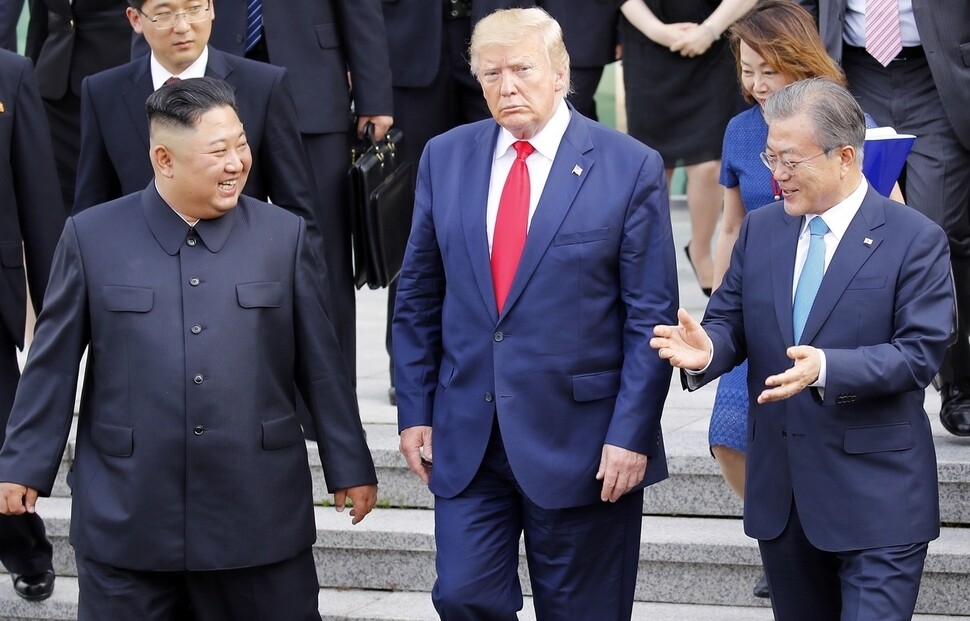
Hani: You served as the deputy director of the Stockholm International Peace Research Institute (SIPRI) in Sweden from 2012 to 2018. I understand you're an expert in security. I know that Sweden launched a nuclear weapons research program in 1946, and by the 1960s it had designed a 600-kg nuclear weapon with 20 kilotons of power. But Sweden stopped its own nuclear weapons program in 1968. Can you briefly explain why Sweden gave up its nuclear program? What implications can Sweden's denuclearization have for North Korea's denuclearization? How can Sweden help North Korea denuclearized?
Hallgren: It is important to show that there are examples of countries that have had the nuclear capacity who have deliberately and voluntarily chosen to disarm. We did not have full operational capacity, but we certainly had the technological capacity. We dispensed of it are because of the NPT, and that we thought that nuclear weapons would decrease security for us. There are a couple of other examples of countries in the world who have been near nuclear states, but decided to dismantle. South Africa, Kazakhstan, Italy, for instance. North Korea has already said it will denuclearize, but if and when they do they can study the example of Sweden and other countries on how to technically do that. Because it is a quite difficult and complicated process. I think it is important to have outside verification and inspectors. Highly enriched uranium (HEU) is actually removed from the country along with all delivery systems. There are many countries who possess this capacity, and there is IAEA. Sweden certainly has that type of capacity. We have experts who could be helpful for the denuclearization process. We would be more than happy to do that.
If we have nuclear weapons, others need to relate to that, they need to point their weapons to watch us. It means we are becoming targets of other countries.
Sweden will continue to deliver humanitarian aid to North KoreaHani: Sweden, along with Switzerland and South Korea, is one of the largest providers of humanitarian aid to North Korea. Sweden is providing aid to North Korea through the World Food Program [WFP], the Food and Agriculture Organization [FAO], the Swedish Red Cross, the UN Children's Fund, and Concern World Wide. You were in charge of humanitarian affairs 2006 and 2012. What is the position of the Swedish government regarding the delivery of humanitarian aid to North Korea?
Hallgren: We will continue to deliver humanitarian aid to North Korea as long as there is a need for aid. We've done so since 1995, and together with Switzerland, we are the longest and biggest humanitarian aid deliverers to North Korea. I am talking about not promises but actual delivered aid. Because Swedish humanitarian aid is very much aligned with humanitarian principles in that it needs to be based on the very objective needs of the beneficiaries. It should be delivered impartially, neutrally, and independently. Our position is that we have a country where there are humanitarian needs. North Korea is not the only country where the humanitarian situation is created by political decisions. Sometimes it is because of natural disasters, war and conflict. These poor boys and girls, and the elderly and handicapped, they are suffering. So as long as there are humanitarian needs, Sweden always assesses that need.
We stand fully behind all of the UN Security Council resolutions and all of the full sanction regime. Because we think that North Korea should disarm. But in those resolutions, there are also very clear exemptions for humanitarian aid. Sweden was an elected member of the Security Council. We worked very hard to uphold this humanitarian exemption and imperative. Now obviously we need to make sure that whatever we deliver should be monitored and we should make sure that it reaches to beneficiaries and so on. That is a challenge in all humanitarian situations. With our embassy in Pyongyang, this is one of the prime, key tasks: to monitor the humanitarian aid and ensure it reaches the beneficiaries.
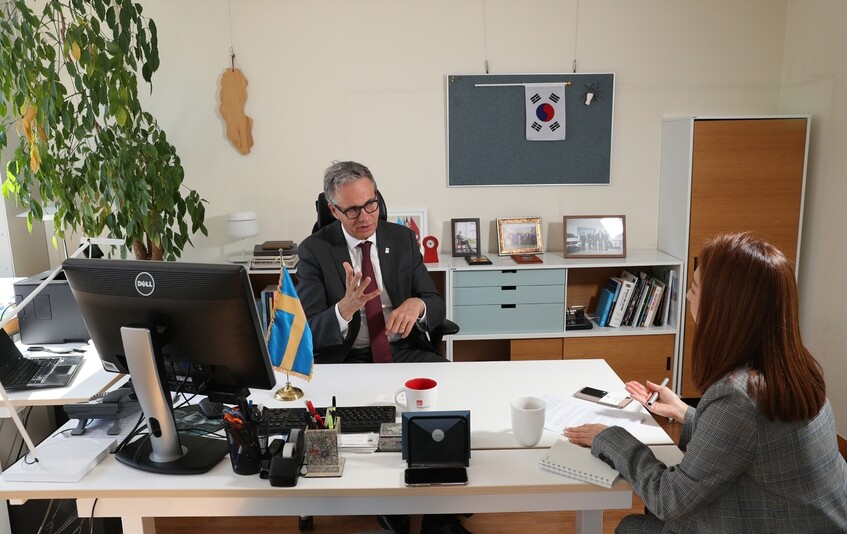
By Noh, Ji-won, staff writer
Please direct comments or questions to [english@hani.co.kr]

Editorial・opinion
![[Editorial] Penalties for airing allegations against Korea’s first lady endanger free press [Editorial] Penalties for airing allegations against Korea’s first lady endanger free press](https://flexible.img.hani.co.kr/flexible/normal/500/300/imgdb/original/2024/0502/1817146398095106.jpg) [Editorial] Penalties for airing allegations against Korea’s first lady endanger free press
[Editorial] Penalties for airing allegations against Korea’s first lady endanger free press![[Editorial] Yoon must halt procurement of SM-3 interceptor missiles [Editorial] Yoon must halt procurement of SM-3 interceptor missiles](https://flexible.img.hani.co.kr/flexible/normal/500/300/imgdb/child/2024/0501/17145495551605_1717145495195344.jpg) [Editorial] Yoon must halt procurement of SM-3 interceptor missiles
[Editorial] Yoon must halt procurement of SM-3 interceptor missiles- [Guest essay] Maybe Korea’s rapid population decline is an opportunity, not a crisis
- [Column] Can Yoon steer diplomacy with Russia, China back on track?
- [Column] Season 2 of special prosecutor probe may be coming to Korea soon
- [Column] Park Geun-hye déjà vu in Yoon Suk-yeol
- [Editorial] New weight of N. Korea’s nuclear threats makes dialogue all the more urgent
- [Guest essay] The real reason Korea’s new right wants to dub Rhee a founding father
- [Column] ‘Choson’: Is it time we start referring to N. Korea in its own terms?
- [Editorial] Japan’s rewriting of history with Korea has gone too far
Most viewed articles
- 160% of young Koreans see no need to have kids after marriage
- 2Months and months of overdue wages are pushing migrant workers in Korea into debt
- 3[Editorial] Penalties for airing allegations against Korea’s first lady endanger free press
- 4Presidential office warns of veto in response to opposition passing special counsel probe act
- 5Hybe-Ador dispute shines light on pervasive issues behind K-pop’s tidy facade
- 6S. Korea “monitoring developments” after report of secret Chinese police station in Seoul
- 7[Reporter’s notebook] In Min’s world, she’s the artist — and NewJeans is her art
- 8[Exclusive] Hanshin University deported 22 Uzbeks in manner that felt like abduction, students say
- 9All eyes on Xiaomi after it pulls off EV that Apple couldn’t
- 10OECD upgrades Korea’s growth forecast from 2.2% to 2.6%